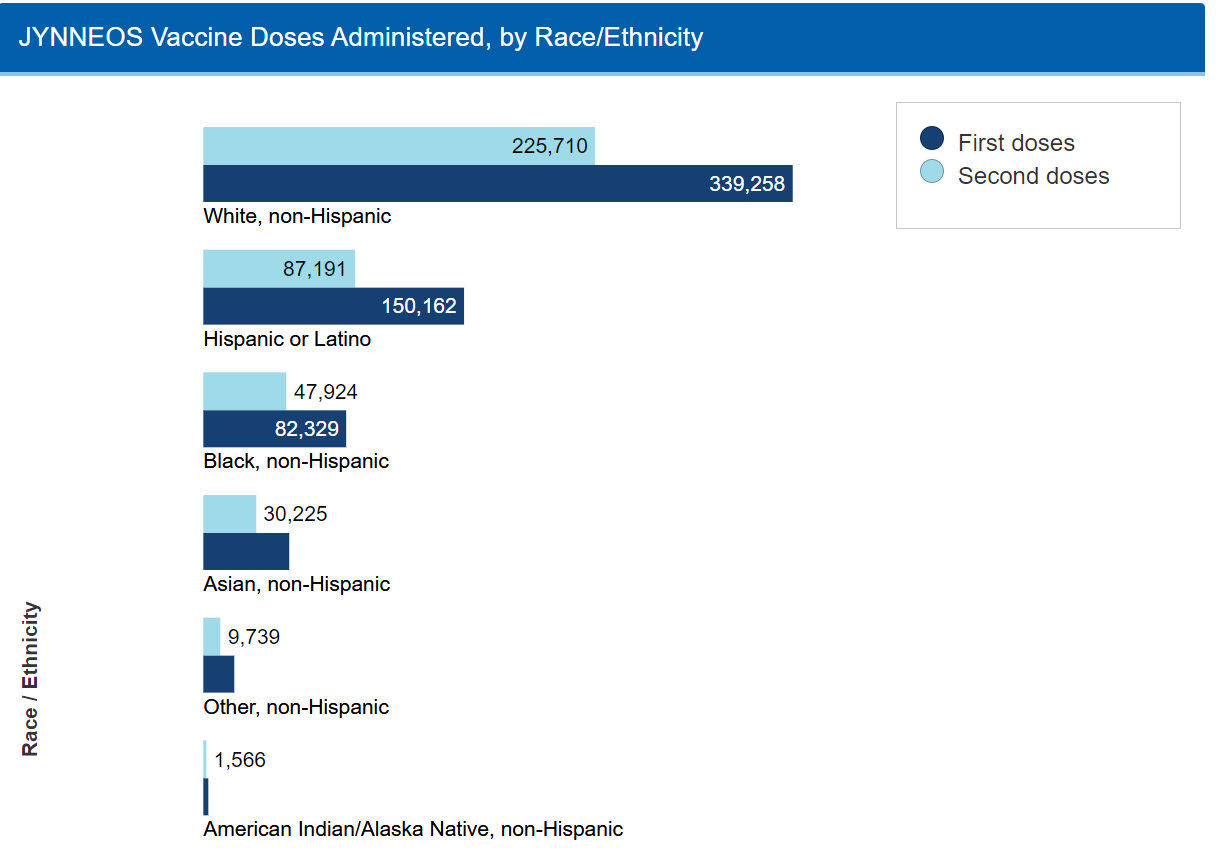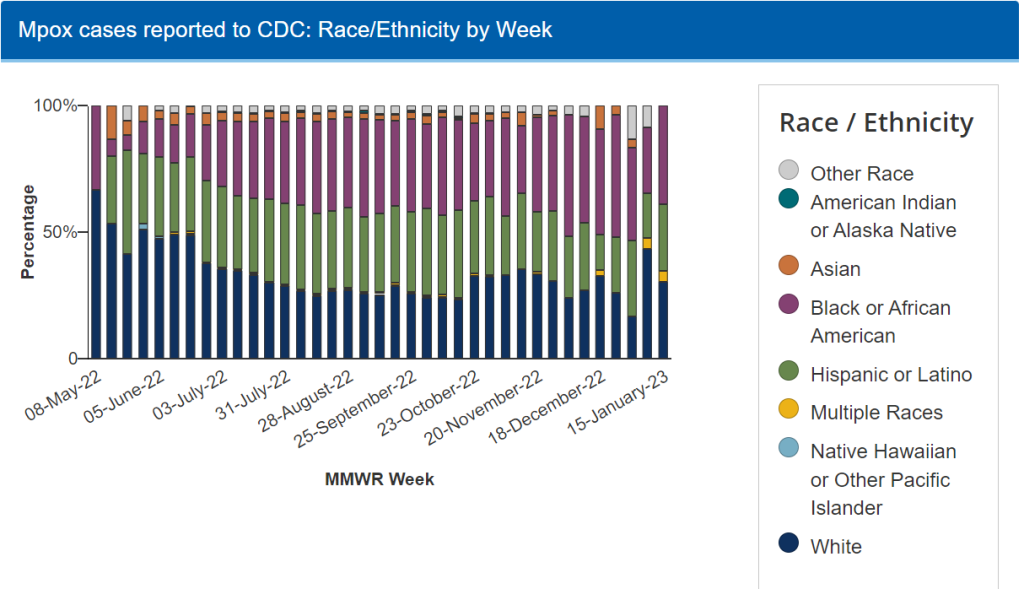By: Courtney Johnson, Communities of Color and Media Consultant and MPV Subject Matter Expert
There are currently 30,083 mpox cases in the U.S., with Black people currently making up 39% of all cases. Although Black people account for 39% of all mpox cases, they make up only 9% of the total vaccinations administered.
Overall, the transmission of mpox has greatly decreased, in part due to the mobilizing and organizing around mpox vaccinations and prevention performed by queer people of color; wide-spread vaccination events and campaigns have largely occurred and been organized by the community taking their health into their own hands and succeeding. However, there are still cities, such as Dallas, that are still seeing experiencing new and rising cases of mpox.
While cases of mpox are still popping up across the United States, we have moved beyond the 450 daily case average that was seen at the peak of the outbreak in August. Now that transmissions have decreased, we have the opportunity to reflect on, and continuing learning from, the information we’ve gained from this particular health outbreak.
While there were numerous barriers, especially for communities of color, in accessing the mpox vaccine, public health officials should use this information to better serve communities and offer vaccines moving forward. Making mpox vaccinations a standard part of care is mandatory and should be demanded by those concerned about mpox and their health relating to the virus; vaccines should still be readily available for anyone who would like one.
Across the course of the mpox outbreak, it was also found that 40% of cases in the United States were diagnosed in people who were living with HIV. There is clearly a need to tailor health response to consider the unique circumstances of vulnerable popultaions. Black and Brown people are most likely to not be virally suppressed, but have held lower vaccination rates since the beginning of the health outbreak and make up a large percentage of mpox diagnoses. There is no excuse for poor public health response in bridging the gap in equitable care for vulnerable communities, and this information should be carefully utilized to adjust our country’s response to health outbreaks in the future.

“We’ve learned that we have to talk health into our own hands, and I do think that we will remaind vigilant as a community for this outbreak and future outbreaks,” says Tony Hoang, the Executive Director of Equality California.
As of January 31, the emergency declaration for mpox has been lifted. This does not mean that the health break is over; the focus now is on making sure that those who wanted to receive the mpox vaccine, but who were not able to be vaccinated due to stigma, access, or toher unique circumstances, are receiving vaccinations. In order to fully ensure that the mpox outbreak is under control, ongoing vaccination dissemination must be equitable and reaching all populations.
While the LGBTQ+ community has been saving and taking care of ourselves and our health for decades, the hope moving forward is that Public Health Adminstrators will take the lessons learned from the COVID-19 and mpox health outbreaks and apply those learnings to future public health responses and procedures.













